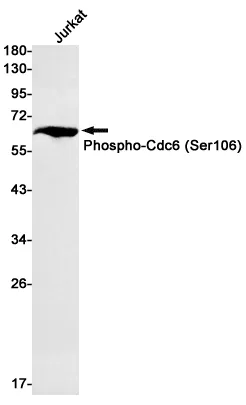Summary
Performance
Immunogen
Application
Background
Probable tumor suppressor initially identified as a CDK5R1 interactor controlling cell proliferation (PubMed:12054757, PubMed:12737517). Negatively regulates NF-kappa-B-mediated gene transcription through the control of RELA phosphorylation (PubMed:17785205, PubMed:20228063). Also regulates mitotic G2/M transition checkpoint and mitotic G2 DNA damage checkpoint (PubMed:15790566, PubMed:19223857). Through its interaction with CDKN2A/ARF and MDM2 may induce MDM2-dependent p53/TP53 ubiquitination, stabilization and activation in the nucleus, thereby promoting G1 cell cycle arrest and inhibition of cell proliferation (PubMed:16173922). May play a role in the unfolded protein response, mediating the ufmylation of multiple proteins in response to endoplasmic reticulum stress (PubMed:23152784). May also play a role in the rupture of the nuclear envelope during apoptosis (PubMed:23478299). May regulate MAPK14 activity by regulating its dephosphorylation by PPM1D/WIP1 (PubMed:21283629).
Research Area
Cell Biology






